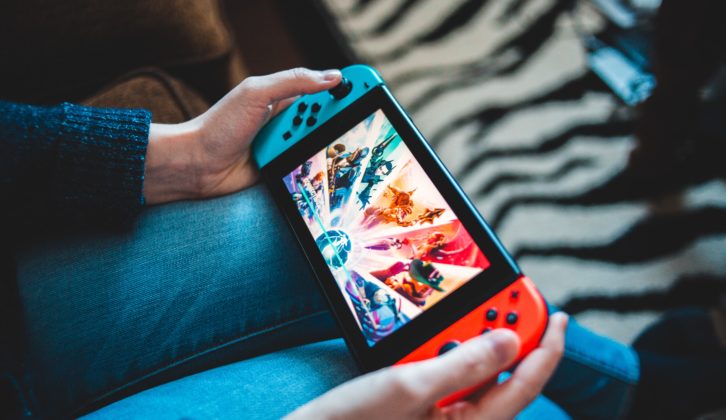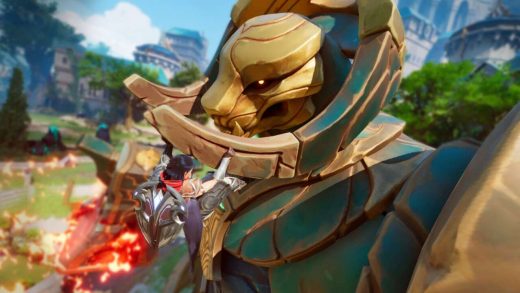

Every day, thousands of new apps are launched in the App Store and Google Play – and the majority of them are mobile games. How do you become a ‘known’ in a mobile gaming world of so many unknowns? The fastest way is to leverage what’s already known and trusted: brand intellectual property.
Brand IP is everywhere, from movies and TV shows to anime, fashion, sports and music. The Simpsons, Kim Kardashian, Fallout, Walking Dead and Marvel are some of the most popular examples of developers and publishers creating mobile games based on existing brands’ characters and storylines.
And it’s not just an occasional blockbuster: Some 30% of the top 100 grossing games utilize brand IP, as do 24% of the top 200. If you include existing game titles such as well-known PC, console and arcade games, that number goes up to 43%, according to GameRefinery.
Advantages of brand IP in mobile games
Customer acquisition costs significantly reduce when consumers can instantly recognize the brand and form an association with the game. The stronger the IP or brand’s connection to its audience, the stronger the ROI.
Developers also benefit from the brand’s independent trajectory and growth. They can keep the game fresh and exciting as new storylines develop and use branded campaigns to highlight new features, increasing player retention.
A good example of this is MGM Studios and Legally Blonde. The game is a combination of puzzle and choice-based narrative mechanics, mixed in with themes and messages of the films. It empowers users to breathe life into an iconic character and tell their own version of the story and, when Legally Blonde 3 comes out in May, the game makers can ride that wave of Hollywood buzz to get even more downloads and loyal users.
How mobile games enhance brand IP
Brand IP in mobile games isn’t just about expansion of reach, or expansion of money. It’s also about the expansion of the brand.
Yes, mobile app developers have good reason to license known characters and storylines for their own benefit. But the brand benefits, too.
It reaches new audiences in the most engaging format of entertainment – active play. It also generates a new or additional revenue stream through licensing fees and gains another marketing channel.
It also creates an opportunity to create something fresh and exciting, which in today’s oversaturated entertainment landscape with more options than ever before, is needed to reclaim lapsed audiences who are distracted by the bright and shiny releases happening each day.
Examples of successful branded games
One brand that has truly led the charge in this area is Lego. Their core business is still in building sets, but they are using gaming to reinforce their brand. As early as 2018, they were partnering with Warner Bros. to launch new IP designed specifically for Chinese users.
In addition to the free-to-play mobile racing game, the company produced a range of obstacle courses, building sets, action figures and a board game – as well as an online immersive game and one created for consoles like Nintendo and PlayStation. This, to me, represents a brilliant execution of a full scope of entertainment and interactive options, where there is truly something for everyone.
Lego is seeing huge success in the connected digital space and doubling down, recently announcing a brand new partnership with Fortnite-maker Epic Games.
Within the U.S., we’ve also seen massive successes like Marvel, Dragon Ball and Star Wars, to name a few.
One interesting example of the mobile game fueling the growth of the franchise itself was Star Trek Fleet Command. It was released in 2018, originally based on the J.J. Abrams movies, but has since introduced content from Star Trek’s recent TV series Discovery and Picard. In late 2021, its creator Scopely and Viacom CBS launched the PC version, with players able to seamlessly switch between PC and mobile.
What does this mean for the brand? A couple of years ago, Star Trek: Discovery ratings were “a disaster.” Today, it’s the flagship original programming on Paramount+ and is one of the App’s most-watched series.
Sometimes it also works in reverse, where a new game IP is leveraged for film and TV. The Last of Us, Castlevania, Fallout, League of Legends, Borderlands and Mario are instances where game IP moved over to other mediums.
Is this the right tactic for your brand?
But what if your brand doesn’t lend itself to either borrowing from an existing mobile game, nor pushing out your own into a game? Is a Mr. Clean mobile game going to do well, let alone make any sense? Making games is hard, and it’s not for every brand, particularly with the added challenge of finding the right developer who can preserve the core of your brand’s identity. Even major brands and agencies have failed to identify and vet the right publisher.
So how do you take advantage of this massive market if you can’t easily go out and build your own? Advertise in them!
Instead of investing hundreds of thousands of dollars to license or build your own game, use playable ads to replicate the levels of interest and engagement that users get from gameplay. Even if your brand has no obvious characters or gameplay, you can still participate in the space through simple, playable creatives.
Sheeva Banton is vice president, West Coast, of AdColony.
Subscribe to our free newsletter to get the latest marketing news and insights direct to your inbox.


